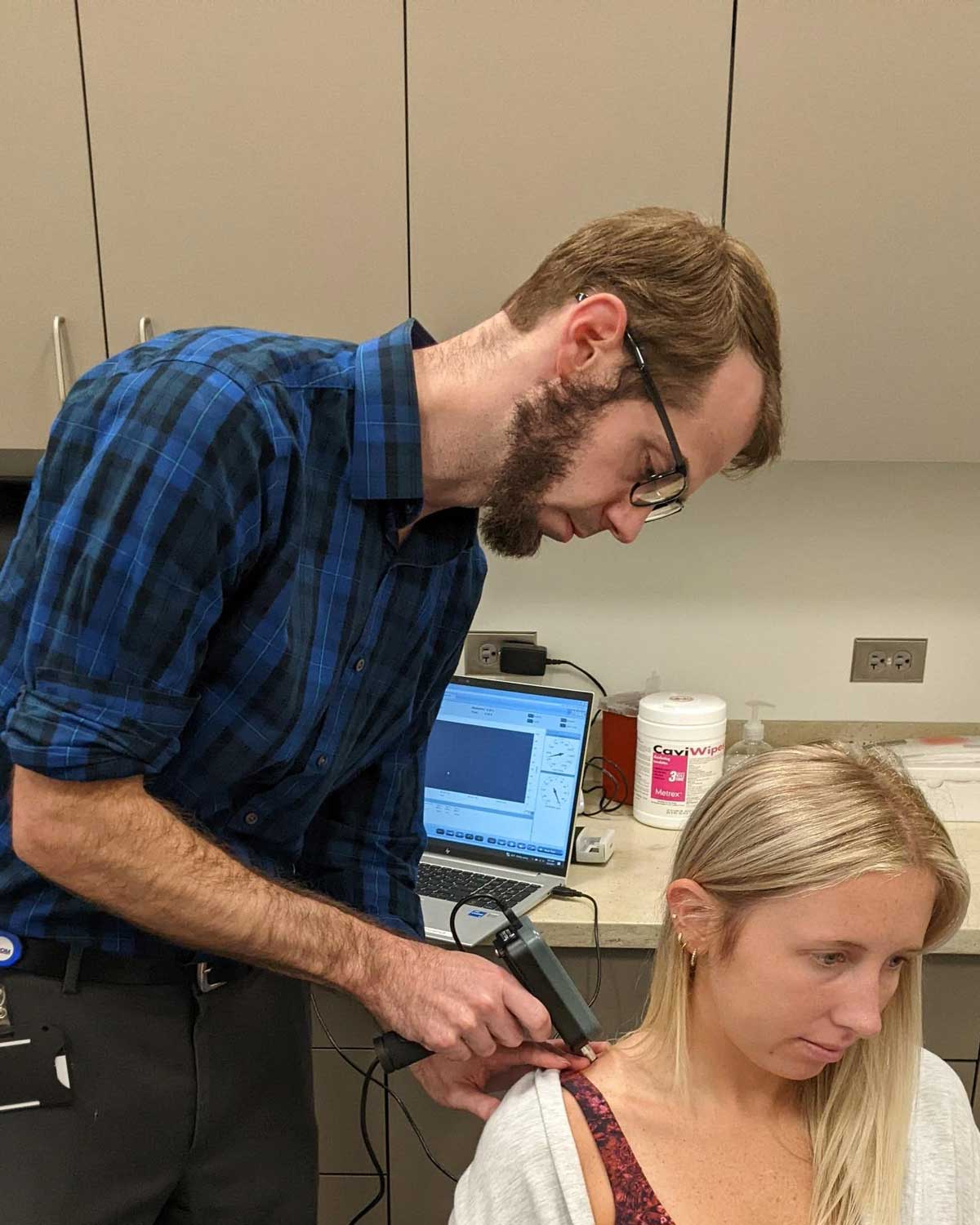In the past decade, research has altered the understanding of pain and treatment paradigms.
According to Lowe, his interest in the topic of anxiety and chronic pain arose from
his clinical practice where he had success treating patients with persistent pain.
The developing nature of research in this area also intrigued him. Now, as an assistant
professor with PCOM Georgia’s Doctor of Physical Therapy program, he is sharing his passion for this topic with his students.
- Researcher Scott Lowe is probing anxiety's impact on pain perception to advance chronic
pain treatment in physical therapy.
- Findings offer insights for clinicians to distinguish normal vs. abnormal pain reactions,
improving patient care.
- By involving students, Lowe advances pain neuroscience understanding, preparing future
physical therapists for evolving practices.
“I teach predominantly kinesiology and orthopedic content, so one of the big ways
I incorporate this content is some of the science of pain and how symptoms are not
always directly related to mechanical issues,” he explained.
Lowe has noted that often outdated ideas about pain often exist even among graduate
healthcare students. By involving students in his research, he hopes to change that.
“Several of my students have been involved in this project as both co-investigators
as well as subjects, so they are getting some first-hand experience into some of these
more advanced pain neuroscience topics,” he said.
Lowe believes this experience will serve his students well as they become practicing
physical therapists.
“The importance of knowledge about this topic has only increased as awareness of the
opioid crisis has increased,” Lowe explained. “These current concepts apply well within
every physical therapy practice setting so we are actively preparing our students
to be on the leading edge of how the profession is advancing.”


